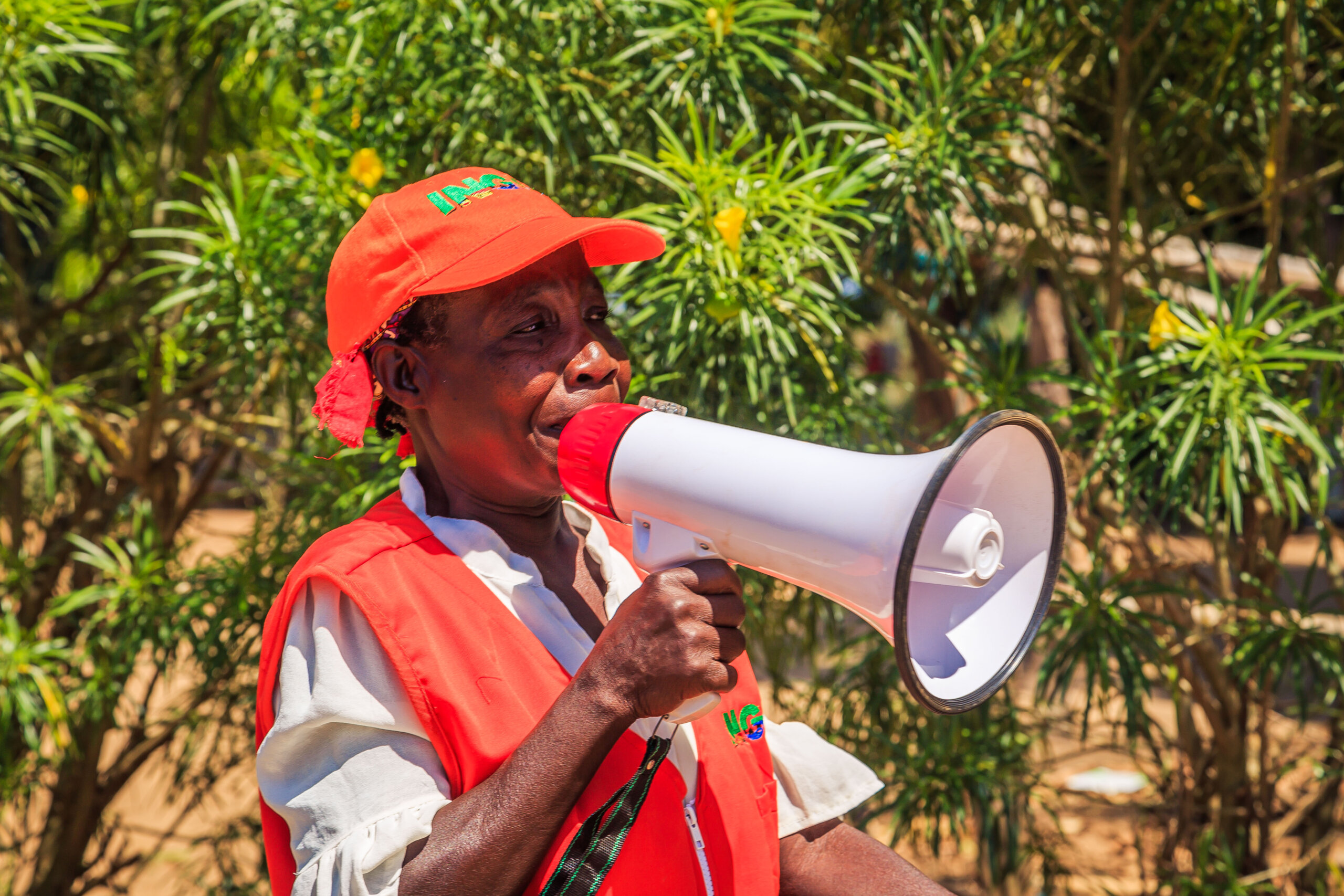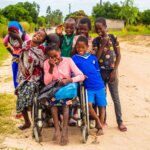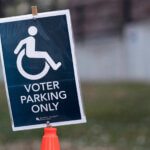- Gender
- Disability Rights
On the International Day for the Elimination of Violence against Women we explore the impact of gender-based violence on women with disabilities, as well as the importance of programmes which engage men.
On 25 November international organisations, NGOs, civil society, women’s organisations and communities UNITE to join the global movement for urgent investments to prevent violence against women and girls.
Disproportionate effects of gender-based violence on women with disabilities
Gender-based violence includes any harmful act that results in, or is likely to result in, physical, sexual or psychological harm or suffering to a woman, man, girl or boy on the basis of their gender.
One in three women have been subjected to violence at least once in their lifetime.
According to UN Women, women and girls with disabilities are three times more likely again to experience gender-based violence.
“Violence against women and girls with disabilities is a widely ignored human rights abuse. Perpetrated by family, intimate partners, caregivers, neighbours and institutional facilities, it can only be ended it by involving all of society,” says Mathilde Umuraza, expert on gender and gender-based violence at Light for the World.
“Despite the evidence, women and girls with intersectional identities, such as diverse women and girls with disabilities, face a higher risk of neglected and unreported incidence.”
Recently, there is growing evidence on the importance of male engagement in addressing gender-based violence, especially at community level.
The role of men and boys is key; as our programmes focused on the rights of women and girls with disabilities, are finding out.
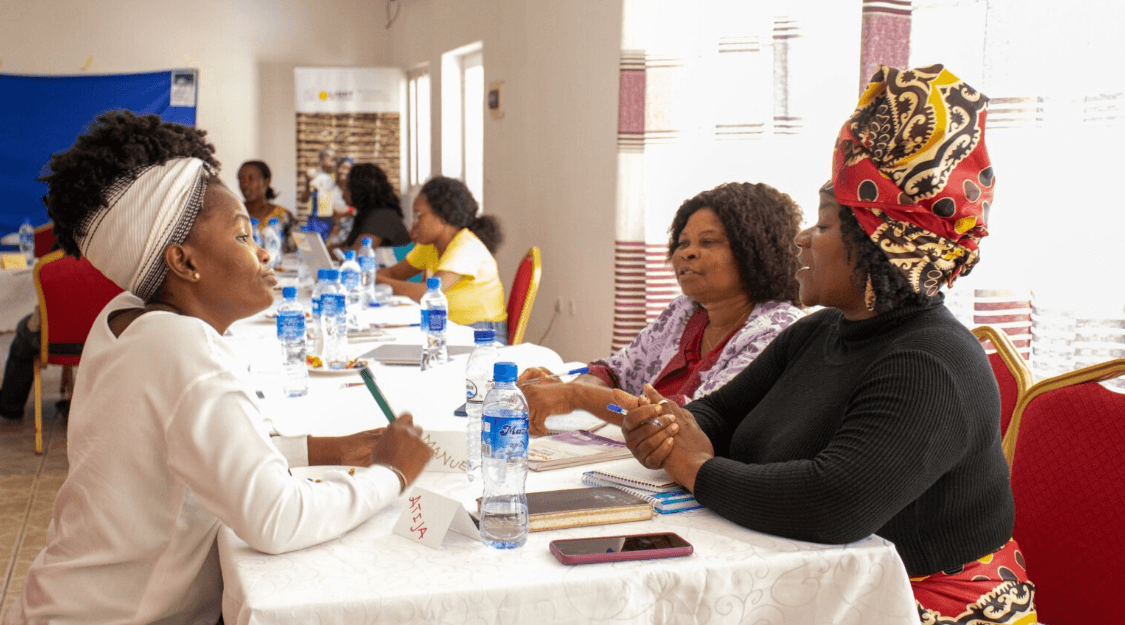
Uniting against gender-based violence
Together with Girl Child Rights – a Mozambican feminist NGO, that focuses on adolescent girls and young women – we are working to implement the InPower programme in Sofala, Mozambique.
Alongside Girl Child Rights, we aim to advance gender and disability rights and empower women and girls, especially those with disabilities, to be safe from different forms of violence and harmful practices. The project is funded by ADA, with funds from the Austrian Development Cooperation.
Through InPower, we have developed “safe spaces” in our disability inclusion projects, which offer room for women and girls, as well as men and boys, to discuss sexual and reproductive health issues, gender-based violence and positive masculinity.
In order to advance gender equality across various aspects of life, including family and community dynamics, it is imperative to actively include and engage men and boys in endeavors to eradicate gender-based violence. This involves fostering a sense of responsibility among men, encouraging them to take charge of their sexual and reproductive behaviour, as well as their roles within the family and society.
Amelia Alfonso, Girl Child Rights InPower Project Officer
Talking about positive masculinity is an important way to tackle toxic masculinity, and promote healthier gender norms and roles, creating a more equitable and inclusive society.
“By creating access to safe spaces in our programmes, we encourage men and boys to play an active role, as role models, change agents and supporters, in dismantling stereotypes and to stand up for the rights of women and girls in their community” says Amelia.
Positive masculinity as a tool for change
Positive masculinity is a way to change the conversation – encouraging men and boys to move away from traditional expressions of masculinity, to more healthy and inclusive behaviours.
Pedro* is an eighteen-year-old boy and high-school student, who lives in Beira with his mum, stepdad and three sisters. Pedro says he grew up with stereotypical views that gender roles are fixed and should not be changed.
He was not involved in household chores, believing that men and boys should never cook or touch cups, plates, pots and pans. He feared he would be regarded as a “matreco” – a name used to shame and belittle men who subvert gender stereotypes.
Through our partnership, Pedro’s sister became involved in a Disability Inclusion in Community Development programme – run by our partner organization the Mozambican Association of People with Disabilities (ADEMO).
Pedro decided to attend one of the safe spaces for boys and men, but initially was reluctant to engage. He feared that changing social norms could have negative effects for his family and be poorly received by his community.
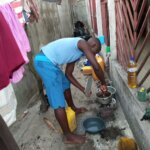
Pedro defies gender norms in his community, helping with household chores. © Girl Child Rights.
In these safe spaces, boys and young men learn that girls and boys have the same rights and obligations and that gender roles vary over time and between cultures.
Pedro told us that he was “very grateful for the safe space”! He could face confidently his fears and it helped him to open his mind. Today, he happily and freely helps his mother and notices that she now has time to take care of herself and have a social life in general.
Pedro plans to “pass these lessons to his peers, as well as his children and other family members”.
Ending gender-based violence against women and girls with disabilities
Women and girls with disabilities should be prioritised as we unite to address gender-based violence.
“There is still limited data on how violence impacts women and girls with disabilities. To fully understand and address this intersectional discrimination we need to collect and analyse this data,” says Mathilde.
“Women and girls with disabilities should also be represented in change-making processes – including in gender-sensitive policy making, and budgeting.
“Addressing gender roles is just a first step in preventing gender-based violence. By sharing responsibilities and accepting that we are equals, we pave the way for young men to stand-up against gender-based violence.”
Find out more about the intersection of gender and disability in Mozambique and read our policy on gender.
* Names have been changed.


